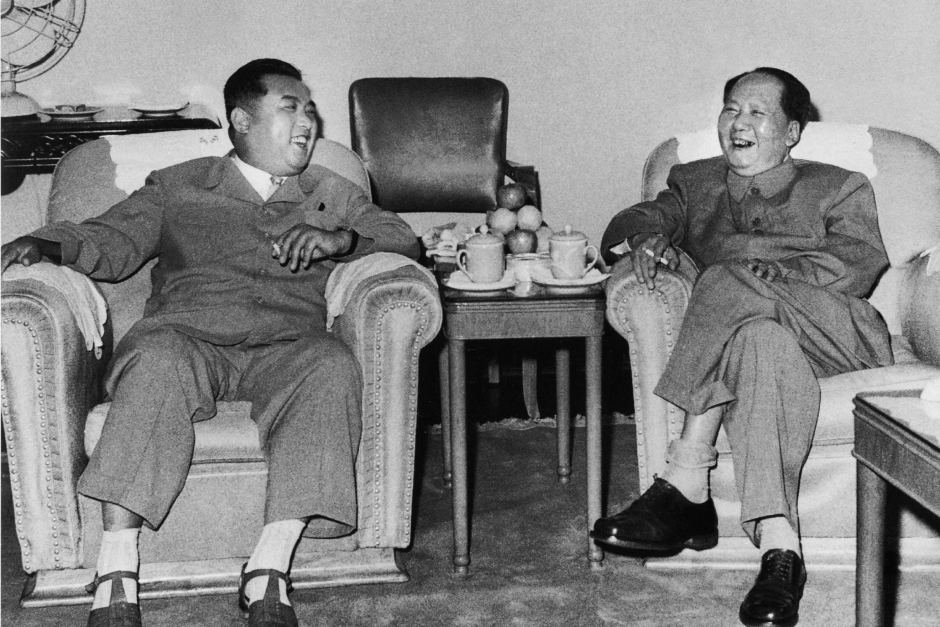Special to WorldTribune.com
 By Donald Kirk
By Donald Kirk
China remains the darling of western, particularly American, intellectuals and academicians even though under President Xi Jinping it’s reverting to the dictatorial habits of the era of Mao Zedung.
The system is not only incredibly corrupt but also authoritarian. We hear constantly about suppression of free speech, of the arrests of those speaking out against the regime or against particular policies, while serious dissent and political opposition is simply not possible.

The same intellectuals who once berated the U.S. for not moving closer to China, for remaining suspicious of Chinese motives and intentions, for objecting to the role of the Communist Party in a system masked in secrecy, have little to say about the real nature of the regime of Xi Jinping.
On American campuses, scholars don’t want to appear critical of the monster that Xi is creating. They would prefer to focus on the problems of American life, on President Trump, on all that’s wrong with U.S. policy.
As for China, intellectuals are nearly unanimous in their praise for the rise of China as what they see as the strongest country in Asia, a rival to the United States from the Indian Ocean to the Yellow Sea and the only force capable of bringing about enduring peace on the Korean peninsula.
It is as though China were fashionable, the flavor of the month, just as it has been since the victory of Mao’s Red Army in 1949 over the “Nationalist” Chinese of Chiang Kai-shek.
While wooing China, these same intellectuals do not seem seriously concerned about China extending its military power around the periphery of Asia from the Indian Ocean to the South China Sea to the East China Sea and on to the Korean peninsula. In fact, they welcome China’s rising influence, suggesting that China could be the savior, the force that will finally persuade Kim Jong-Un in North Korea to listen to reason and abandon his nuclear program.
In that spirit influential Americans were unanimous in their praise of Xi Jinping for having hosted Kim to a lavish banquet in Beijing while Kim declared his interest in “denuclearization.”
As should be obvious, however, Kim’s expression of willingness to discuss his nuclear program came with mysterious conditions to which Xi did not object. It’s certain that Kim will want to extract the same terms that we’ve heard before, meaning withdrawal of American troops and closure of American bases, again exposing South Korea to attack as in June 1950. Nor is there any guarantee that North Korea will not stage incidents as it has done periodically for years.
And, of course, as a dictator accustomed to bullying his own people, Xi did not raise the issue of North Korea’s egregious human rights violations, including the imprisonment of tens of thousands of its citizens in a massive gulag system.
American academicians, full of praise of Xi for exercising his influence over Kim, do not seem disturbed by China’s activities in the rest of Asia. The most obvious flashpoint is the South China Sea, over which China claims complete ownership while building military bases on small islands in waters also claimed by Vietnam, the Philippines and Malaysia.
The U.S. aircraft carrier Carl Vinson remained in the South China Sea after a port call at the central Vietnamese port of Danang, headquarters for U.S. marines during the Vietnam War, but the Chinese responded by sending a flotilla of their own. U.S. warships periodically show the flag, challenging Chinese control, but they’re not going to persuade the Chinese to relinquish their claim. Vietnam had to call off a project for drilling for oil off-shore after the Chinese objected and the Americans showed no sign of doing anything to enforce Vietnam’s claim.
Nor do American intellectuals appear concerned about China’s spreading power South Asia, as seen in construction of ports in Pakistan and Sri Lanka and the construction of a road through the Himalayas giving access to the Indian Ocean. China’s “One Belt, One Road Initiative” is just as alarming as its hold over the South China Sea. By forming a close relationship with Pakistan, a recipient of massive American military aid for years, China threatens not only India but the United States as well.
There is, however, no outcry from American campuses. Rather, the tendency is to criticize the U.S. for remaining a staunch ally of South Korea in the face of all North Korea’s threats and to believe the Chinese will really resolve the nuclear issue in a way that’s acceptable to both the U.S. and South Korea. It should not be difficult to see the true nature of the dictatorship that Xi is leading and to ask why American academicians are not raising voices against China as a threat to democratic ideals as well as American interests.
American intellectuals were so delighted over China’s emergence on the world stage after Mao’s era that they have never quite recognized the menace of a new China.
One conclusion is inescapable: China is so closely allied with North Korea that it’s always going to side with Kim Jong-Un, grandson of the dynasty founder, Kim Il-Sung, who survived with massive Chinese intervention in the Korean War.
Liberal scholars need to adjust their outlook to the new reality of an aggressive Chinese regime that poses a threat to millions of its own people as well as its neighbors.
